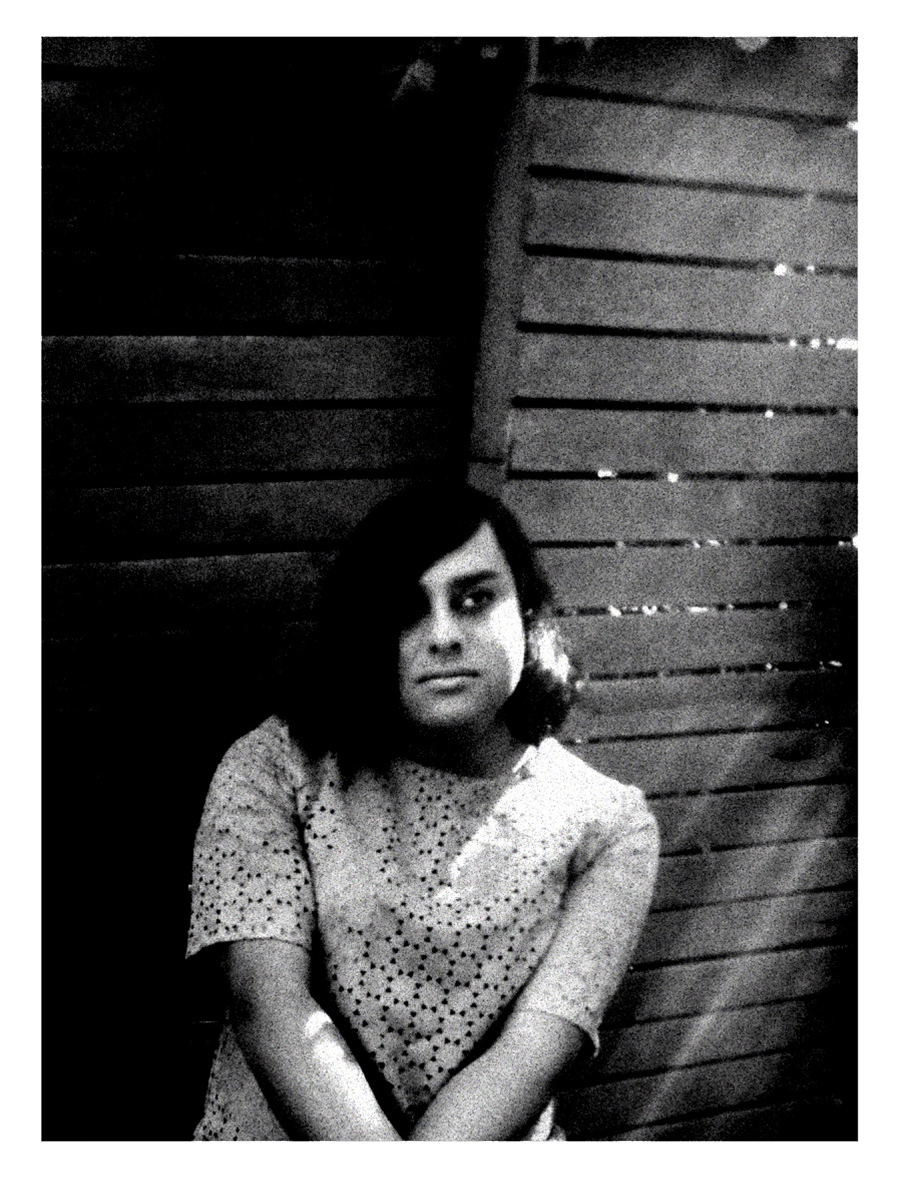Shoeb Ahmad is a multi-instrumental artist of Muslim faith from Canberra, who emerged in the mid 2000s with a series of stellar bedroom recordings. In 2012, Shoeb released the impressive deubt Watch/Illuminate, a shining parcel of folk-electronica. In the time since, Shoeb — now a married parent — has come out as trans. Their brand new album, quiver, is wistful and confessional, as Shoeb documents this new chapter of their lives and navigates the complex intersections of their identity.
quiver tells of Shoeb’s experiences, the people they love, and reaches out to listeners who might be going through something similar. Here, i-D chats with Shoeb about self-actualisation, family life after coming out, and feeling the softest they’ve ever felt.
Hi Shoeb. What makes quiver different from everything you’ve done so far?
This album is, first and foremost, an expression of vulnerability. Expressing my true identity without any shroud to hide behind: what you see and hear is me in all its raw presence.
You wrote the lyrics for the lead single mask-ed after you were robbed in a Melbourne hotel room last year while presenting femme. Can you tell us about how that experience informing your songwriting?
A lot of my life as a femme person was compartmentalised, even after I decided to embrace it as a part of me. That obviously meant only expressing the femme me at home behind closed doors, or packing for it on tour so if I had time to myself, I could be genuine then too.
The robbery hit me pretty hard: I suspect I was a target because of how I looked, and that [looked like] I may have had a secret to hide. I remember talking to police and explaining my life situation while thinking, “How can I still keep this hidden away when it’s such as crucial part of who I am?” When I got home, I tried to keep a brave face but found myself breaking down one day. There was this deep feeling of violation. I had to relieve the pressure, so I sat down in the studio listening back to the music. The words came out then and there. It was apparent that I wanted — needed — to stop holding back and speak from my heart, explain the feelings of shame through to acceptance and the strength in honesty. It became a very productive time in terms of writing.
How do you manifest this honesty through your music?
Most of my songwriting comes from creating non-sequiturs and adapting rough approaches to vocalising. After the robbery though, the idea of writing the record as a therapeutic experience meant really looking at what I was feeling and how to externalise it. A lot of personal stuff is explored throughout [the album]: my exploration of gender being the obvious one, and how that affects my wife and kids, in both positive and negative ways. Writing it also helped me to reflect and take stock on what’s shaped me emotionally — things like having an absent parent during childhood and the burden of familial expectations.
Exposing so much of yourself can leave you quite vulnerable. Definitely. It has left me vulnerable and very open but I’m not afraid of that. I want people to know the complexity of my life story: that it’s not all confidence and being headstrong. I also want people who find themselves in a similar position to feel a connection to what I’m saying.
What’s your experience of navigating your faith and being trans?
I think what I’m now trying to find my way towards, as a Muslim, is the role of gender and freedom of physical expression in Quranic teachings; because while I’ve embraced their place on the trans spectrum, I’ve not renounced Allah and my faith systems. I do think these elements in my life can be compatible because faith is such a personal thing. The questions won’t stop coming but that’s healthy; it’s important to always reassess what you believe in.
You’re a strong supporter of art and music from Canberra, a city some consider culturally stagnant. Where do you feel like you fit into Australia’s music landscape?
There’s definitely a conversation around why people are dismissive about Canberra as a cultural entity, but I think the music landscape here is pretty fertile and I do feel very connected to it — if only by extension and with regards to my history as part of the city’s history. I don’t think I could make the kind of musical statements I do if I lived in a more densely populated city, and certainly not without these melancholic autumns and frosty winters. But I wish Canberra’s place on the Australian musical landscape was seen as similar to how revered university towns like Washington DC or Austin are in the States. Those comparisons to me are very justified with what I see here in bars, backyards, and living rooms.
quiver is due for release early 2018. Shoeb Ahmad will tour their single this July and August.
July 8, Canberra @ Gorman Arts Centre with Wives and Naif
August 5, Melbourne @ LongPlay with No Sister and Aphir
August 12, Sydney @ Golden Age Cinema + Bar with special guests
August 19, Brisbane @ Sonic Masala Fest
August 20, Brisbane @ Sonic Sherpa with TV Haze, Tall Pines
Credits
Text Cher Tan
Photography Kate Ahmad
